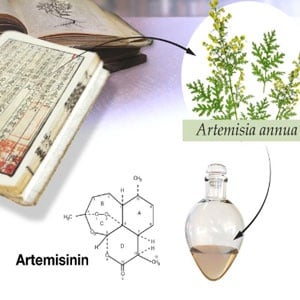
William C Campbell, Satoshi Omura and Youyou Tu were awarded the Nobel Prize for Medicine on Monday for developing treatments for devastating parasitic diseases that affect hundreds of millions of the world's poorest.
Campbell and Omura discovered Avermectin, a new drug that "radically lowered" incidences of river blindness, lymphatic filariasis, as well as other parasitic diseases.
Tu discovered Artemisinin, a drug that has significantly reduced the mortality rates for those suffering from malaria, the Karolinska Institute said.
"These two drugs are affecting the lives of 3.4 billion people living in endemic areas with the risk of contracting filariasis or river blindness or malaria," jury member Jan Andersson told reporters.
The consequences of the trio's medical advancements are "immeasurable," jury member Hans Forssberg said, noting that these also helped reduce poverty by allowing children to go to school and adults to work.
Forssberg said Omura was very happy about the news, but the committee had been unable to reach Campbell or Tu - who is only the 12th woman to win the medicine prize since 1901 - prior to the announcement.
In Tokyo, the 80-year-old Omura told public broadcaster NHK: "I am just wondering whether I am allowed to earn this prize."
"I have learned tremendously from microorganisms. So, I think that microorganisms are the ones that should receive the prize," said Omura, professor emeritus at the Kitasato Institute.
Omura had isolated strains of the Streptomyces bacteria that he had collected from soil samples taken in Japan to be analyzed for their activity against harmful microorganisms.
Campbell - who was born in Ireland and is currently a research fellow emeritus at Drew University in Madison, New Jersey - worked with Omura's samples and isolated a compound known as Avermectin from one of the cultures and demonstrated that it was remarkably efficient in combating parasites in domestic and farm animals.
"Omura and Campbell's contributions led to the discovery of a new class of drugs with extraordinary efficacy against parasitic diseases," the institute said.
More than 100 million people are afflicted with lymphatic filariasis, which is characterized by thread-like worms that live off the lymph system and causes chronic swelling, including elephantiasis.
Tu is the chief professor at the China Academy of Traditional Chinese Medicine. Her work, beginning in the 1960s, with herbal remedies first written about in ancient Chinese literature led to a breakthrough in the treatment of malaria.
Tu focused on the plant Artemisia annua. She extracted an active ingredient in the plant - Artemisinin - and purified it. Tests showed it had "unprecedented potency" in treating malaria, which infects close to 200 million people every year.
Malaria claims more than 450,000 lives each year, and most of the victims are children.
"The discoveries of Avermectin and Artemisinin have revolutionised therapy for patients suffering from devastating parasitic diseases," the institute said.
Campbell and Omura are to share half the award worth 8 million kronor prize (R 13 000 000 or $956,000 US), Tu was awarded the other half.
Last year, American John O'Keefe and Norwegians May-Britt Moser and Edvard Moser won the medicine prize for the discovery of nerve cells that constitute a positioning system in the brain.
The 2015 recipients of prizes in the fields of physics, chemistry, literature, peace and economics will also be announced in the coming week.
With the exception of economics, the prizes were endowed by Swedish industrialist Alfred Nobel (1833-96), the inventor of dynamite.
The awards are presented on December 10, the anniversary of Nobel's death.
Read more:
Nobel Prize for Medicine 2014 awarded to brain breakthrough trio
Researchers win Nobel prize for medicine in 2013 for hormone discoveries




 Publications
Publications
 Partners
Partners














